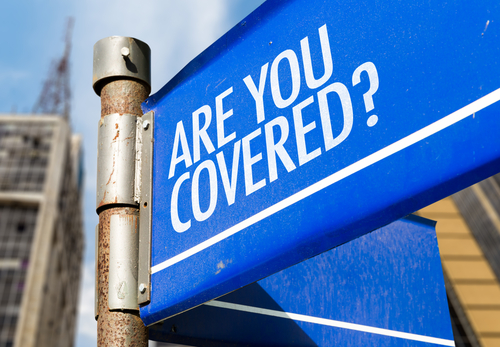
If you suffer an injury in a train accident, you may not be held accountable. In this instance, you may have the option to seek damages from an at-fault party. A Philadelphia personal injury lawyer can help you explore this option and figure out what to do next.
After a train collision, Demand Rand. With help from Rand Spear, The Accident Lawyer, you may be able to get compensation from anyone responsible for your train crash. Contact us today to schedule a free consultation with our Philadelphia train accident lawyer.
Types of Train Accidents
According to Philadelphia’s Public Transit Trips, as of September 2023, there were approximately 13.2 million transit riders in Philadelphia. Those who ride the train usually enjoy a safe trip from point A to point B. However, accidents happen, and common types of train crashes include:
- Head-on collision
- Rear-end collision
- Slanting collision
- Collision with a buffer stop
- Derailment
A train collision may leave you with a minor or major injury. If you are dealing with a spinal cord injury after a train crash, it may be in your best interests to seek medical help. This allows you to receive treatment, and you may be able to submit a claim for damages to cover your medical costs.

Train Accident Causes
According to the U.S. Department of Transportation (DOT), 262 train accidents were reported in Pennsylvania between 2018 and 2023. There is no surefire cause for all train crashes. Common reasons why train collisions occur include:
- Human error
- Mechanical failure
- Speeding
- Defective tracks
- Stalled car on track
Rand Spear, The Accident Lawyer, can answer frequently asked questions about train crash causes and similar topics. If you want to file a claim, our Philadelphia train accident attorney may be able to help you out. For more information, reach out to us.
Philadelphia Train Accident Lawyer Near Me (215) 985-2424
Who Is at Fault for a Train Crash
A railroad company is responsible for providing safe transportation. If this business and its employees are negligent, they may be held accountable. For those who get hurt due to a railroad provider’s negligence, you may be eligible to file a personal injury claim.
There are times when a government entity may own a portion of a train track. If there is a train track defect that leads to an accident, the entity responsible for it may be accountable. In this scenario, a train accident lawyer in Philadelphia may be able to assist you with a claim against this entity.
A property owner may be accountable for a train collision and any associated damages. As an example, a property owner may live near a train track and fail to keep items off of it that obscure the track. If an accident occurs due to this issue, the owner may be held responsible and be required to pay damages as part of a premises liability claim.

When to File a Train Collision Claim
In Pennsylvania, there is a statute of limitations of two years for personal injury claims. You may have up to two years from the date of your train collision and injury to pursue compensation. If you choose not to submit a claim within this window, you may be solely responsible for your losses.
If you got hurt in a train crash while working for a railroad company, you may be able to pursue damages based on the Federal Employers Liability Act (FELA). The statute of limitations for filing a claim is two years. A train accident attorney in Philadelphia may look at your case and help you determine the best course of action for pursuing damages from your employer.
With a train collision claim, you may ask for economic and non-economic damages. You may receive economic compensation for medical bills, lost wages, and other quantifiable losses. A judge or jury may award non-economic damages for pain, suffering, and other subjective losses.

How Much a Train Crash Case Is Worth
To determine your case’s worth, you must calculate your economic and non-economic losses. Doing so may be difficult since you may have no idea how long a train crash injury may affect you. A lawyer may help you determine how much money to request in a lawsuit and submit a claim for a reasonable amount of damages.
What you request in a train collision case may not be what you receive in compensation. Pennsylvania has a comparative negligence statute in effect. If you are found to be in any way responsible for your train crash, you may have your damages reduced by your percentage of fault or get no compensation.
If a judge or jury finds you primarily responsible in a train collision case, you may not be awarded damages. Comparatively, a judge or jury may find you partly responsible. If this happens, you may get a portion of the compensation you originally requested.
How to Prove Negligence in a Train Crash Case
In a personal injury case, the burden of proof falls on the plaintiff. If you are seeking damages from an at-fault party in a train collision case, you must prove they were negligent. To do so, you must show that the following elements of negligence were present at the time of your crash:
- Duty of Care: The at-fault party was legally obligated to act cautiously and carefully toward you.
- Breach of Duty of Care: This party chose to act recklessly or carelessly.
- Causation: Your train accident was the result of the party’s actions.
- Damages: You suffered losses due to the party’s actions.
You may use medical records, accident scene photos and videos, and other evidence to support your claim. The wealth of proof you have and how you present it may determine whether a judge or jury awards you damages. With help from a train collision attorney, you may be well-equipped to present a compelling argument that convinces a judge or jury to rule in your favor.
Partner with a Philadelphia Train Crash Lawyer
Rand Spear, The Accident Lawyer, can aggressively pursue compensation on your behalf. Our Philadelphia train crash attorney is available to review your case. Contact us today to request a free case consultation.
Call or text (215) 985-2424 or complete a Free Case Evaluation form










